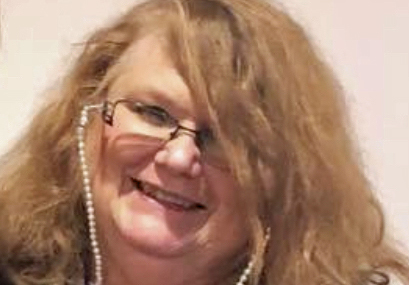Susan Foley used to brag that if she told you she forgot, she was lying. For most of her life, she remembered everything. In the last ten years, however, her mind is more like someone with a traumatic brain injury. She loses her train of thought, and sometimes she can’t get the right words to come out when she talks.
Susan has Hashimoto’s encephalopathy (HE), a type of autoimmune encephalitis (AE) that causes swelling in the brain. When this happens, patients experience an odd array of symptoms. They can say strange things, act like they have no feelings, and stumble, as Susan says, like a drunken sailor. Too often, family members and even doctors think these people are just behaving badly. So getting an accurate diagnosis for this rare disease can be a challenge.
About a year before she was diagnosed, Susan started having trouble walking up steps, noticed tremors in her hands, suffered debilitating headaches, and couldn’t make her bed in the morning without needing to take a nap. She blamed these symptoms on her stressful job. When she began having absence seizures (a type of epilepsy in which the person blanks out for a few seconds, staring off into space) it scared her. She knew she needed to get help.
“I had so many different symptoms that the doctors had no idea what was going on,” Susan says. “My primary doctor kept telling me it was stress related, but I knew there was something more going on. Finally, I asked her to send me to a neurologist.”
Still, it took almost a year of every imaginable diagnostic test and a trip to see a specialist at a large teaching hospital for the neurologist to put all the pieces together. Among the tests the specialist did was a blood test for thyroid antibodies. The results were off the charts. This was the clue the neurologist needed.
“HE has nothing to do with your thyroid,” Susan says. But doctors have noticed that this form of encephalitis is associated with elevated thyroid antibodies. As in Susan’s case, this is often how physicians identify the disease.
Having a diagnosis is one thing but figuring out what this means for your life is a whole different process. When Susan went to the internet in search of accurate information about HE, all she found was a single article. It took a lot more digging through online forums and support groups to find even one other person who had the disease.
That one other person turned out to be Nicola Nelson, a Chicago attorney who had also been recently diagnosed with HE. The two became good friends and, when Susan told Nicola about her idea to write a book, she wholeheartedly agreed.
“I had big dreams, you know?” Susan says. “I thought, people who are diagnosed with HE have no information. They need to know from other patients what to expect, what that patient has gone through.”
Hashimoto’s Encephalitis: A Guide for Patients, Families, and Caregivers, now in its second edition, is still the only book about HE available. It includes stories of patient experiences along with interviews with prominent physicians who specialize in the disease.
In addition to the book, Susan and Nicola started a nonprofit patient organization to provide ongoing support and information for those affected by HE and other autoimmune encephalopathies. HESA (Hashimoto’s Encephalopathy/SREAT Alliance), provides both scientific and experiential information on living with HE (also known as steroid-responsive encephalopathy associated with thyroiditis [SREAT]; encephalopathy associated with autoimmune thyroid disease [EAATD]; and nonvasculitic autoimmune inflammatory meningoencephalitis [NAIM]).
HESA raises awareness and advocates for the HE community and raises funds to support research that patients hope will one day shed more light on the underlying cause of HE/AE and create new, more effective therapies. Last year, HESA joined together with other AE organizations to host a symposium to educate physicians and other healthcare professionals. (Recordings of these and other presentations are available on the HESA website.)
HESA’s support groups include two private Facebook pages, one specifically for teens. Susan and her medical advisory board also consult with individuals privately on everything from physician referrals to how to get insurance to approve IVIG therapy to sensitive issues such as incontinence.
Despite the fact that Susan’s career in business ended when she became sick, she’s busier now than she’s ever been. HESA is her labor of love.
“I will tell you, when one door closes, another door opens,” she says. “HESA has been a life saver to me. I still feel like I’ve got something to give, and I tell people when they’re feeling sorry for themselves, they need to find a purpose. Do not feel sorry for yourself. Do something. It will give you a reason to get up in the morning.”
One of the most effective therapies for autoimmune encephalopathy is IVIG. CSI Pharmacy is excited to welcome HESA and those with AEs into our family of care.
